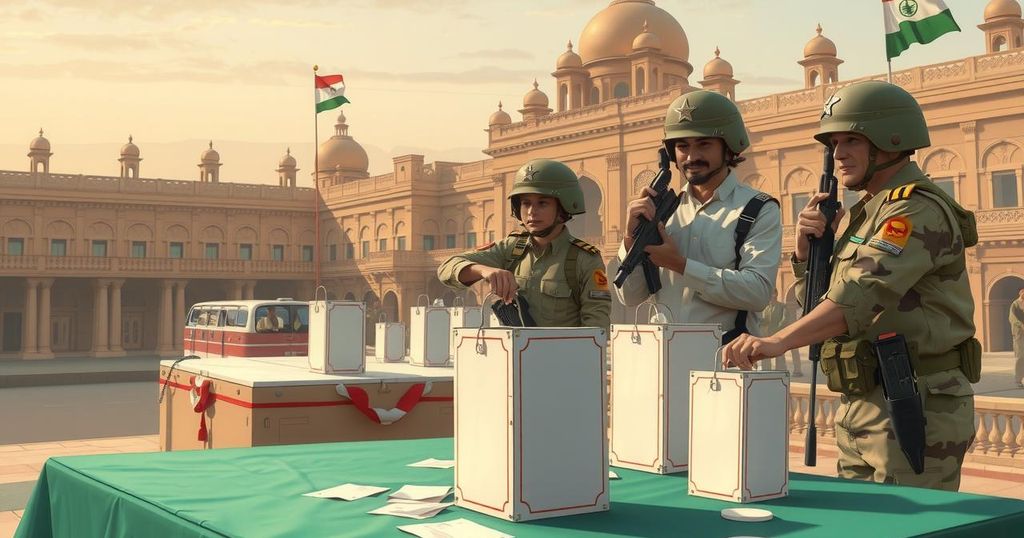World news
” MASRA, 2024 ELECTIONS, AFRICA, AP, CHAD, DEBY, DEBY ITNO, DEMOCRACY, DJAMENA, ELECTIONS, GOVERNANCE, GOVERNMENT, ID, IDRISS DEBY ITNO, MAHA, MAHAMAT IDRISS DEBY, MAHAMAT ISSA HISSEIN, MOROCCO, N ’ DJAMENA, NATIONAL ASSEMBLY, SAHEL, SU, SUCCES MASRA, TRANSFORMERS, VOTER TURNOUT
Stella Nguyen
0 Comments
Chad Elections Mark Transition from Military Rule Amid Opposition Boycott
In Chad, parliamentary elections were held with a low voter turnout as major opposition parties boycotted the process, expressing concerns over its legitimacy. These elections conclude a three-year military transition following the death of President Idriss Deby. While officials claim these elections can lead to decentralization and democracy, the opposition deems them as ineffective for fostering real change.
Chad recently held parliamentary and regional elections with markedly low voter turnout as the main opposition factions opted to boycott the process. These elections signify the conclusion of a three-year transitional phase governed by military authority following the death of former President Idriss Deby. The current junta leader, Mahamat Idriss Deby, has faced criticism regarding the credibility of the electoral process, particularly following a disputed presidential election earlier this year. While officials assert that the elections herald a long-awaited decentralization for the nation, the opposition views the events as a mere façade to perpetuate the ruling family’s influence. A limited number of voters participated, particularly in the capital, where polling stations appeared nearly deserted. Political analysts express concerns about the implications of the election for Chad’s democratic progression, noting that the lack of genuine opposition undermines the democratic process within the country. As Chad grapples with various security challenges, the outcomes of these elections will be pivotal.
Chad has experienced significant political turbulence, especially following the death of long-term president Idriss Deby Itno in 2021, which led to a power transition under his son, Mahamat Idriss Deby. The current transitional government has promised a return to democracy, but the process has been marred by allegations of unfree elections and restrictions on opposition parties. This year’s parliamentary elections were intended to mark the end of military rule and signal a move towards a more representative government. However, widespread accusations of electoral misconduct from opposition leaders illustrate the challenges facing Chad’s political landscape as it attempts to align with democratic norms after decades of authoritarian governance.
The parliamentary elections in Chad reflect a critical juncture in the nation’s political evolution, marked by the end of military rule and the promise of democratic governance. Despite this, the significant boycott by opposition groups has raised valid concerns regarding the legitimacy of the electoral process. With the outcomes yet to be formally reported, Chad’s ability to navigate its transition away from military rule and foster genuine representation remains in question, particularly in light of ongoing security threats and a lack of credible opposition.
Original Source: apnews.com




Post Comment